Posts by Heather Gingrich
Digital insulin management company Hygieia closes on $17 million Series B investment round
Funding will enable expansion of company’s AI-driven d-Nav® technology, which automates real-time insulin dose recommendations for people with type 2 diabetes LIVONIA, Mich., December 2, 2021 – Hygieia, a digital health company for insulin management, has closed on an initial $17 million Series B investment round, led by Israeli venture capital firm Firstime Ventures, and with participation from…
Read MoreThe d-Nav® Program Featured on WXYZ TV
Two thirds of people who take insulin for type 2 diabetes do not have their blood sugar in the desired range. Andrea Isom from WXYZ TV 7 in Detroit talked with Hygieia CEO and Co-Founder Eran Bashan and d-Nav patient Marty Cook to find out how the d-Nav technology helps Marty, and potentially millions of…
Read MoreInsulin’s Next Century: Technology’s role in unlocking the power of insulin
One hundred years ago a group of Canadian scientists and physicians discovered insulin. Frederick Banting, J.R. Macleod, Charles Best and James Collip’s historic finding meant the difference between life and death for people with diabetes. Nearly a century later, Hygieia co-founder Dr. Israel Hodish published a paper1 in Clinical Diabetes and Endocrinology asking the question,…
Read MoreDiabetes discriminates: Why one’s ethnicity can impact the likelihood of developing type 2 diabetes and suffering from its complications
Type 2 diabetes affects about 10% of the general population in the United States. Yet, it occurs in nearly 15% of the Native-American population, nearly 12% of the non-Hispanic black population, and nearly 13% of the Hispanic population, according to the American Diabetes Association. Why does type 2 diabetes impact some ethnicities and races more…
Read MoreInsulin Therapy: The How and Why of Dose Changes
Most patients who use insulin therapy use it for type 2 diabetes. Type 2 diabetes is a progressive condition of insulin deficiency, which means that over time the body secretes less and less insulin. During the second decade of the disease, most patients require insulin injections because they become overtly insulin deficient and no longer…
Read MoreDiabetes and heart disease: How to manage the risk
Although diabetes is a condition of the endocrine system, it also can affect many other systems in the body. For example, there is a strong link between diabetes and cardiovascular disease. In fact, cardiovascular disease is the most prevalent cause of death (mortality) and complications (morbidity) in diabetic populations. Cardiovascular death rates in the United…
Read MoreWhat We Know About Type 2 Diabetes and the Covid-19 Vaccines
As the coronavirus continues to impact lives around the world, the promise of COVID-19 vaccines brings new hope. In the United States, two vaccines are already in use and more are in development. If you have type 2 diabetes, you might be wondering if you should get the Covid-19 vaccine when it becomes available. The…
Read MoreArtificial Intelligence: Just what the doctor ordered
Medicine is the next industry where AI will replicate human decision making Just as the 2008 recession ushered in an era of unbridled innovation in financial tech, the effects of the COVID-19 pandemic are similarly accelerating a radical shift in medicine. In the last year, as COVID-19 overwhelmed hospitals and physicians struggled to deliver care…
Read MoreInsulin Therapy and the Weight Paradox
Most patients with adult-onset diabetes or type 2 diabetes will require insulin therapy at some point. Typically, it happens toward the second decade of the disease. In many cases, patients gain weight during the first six to 12 months after they start insulin therapy. On average, people gain about 10 pounds. Interestingly, insulin therapy does…
Read MoreGood Diabetes Management Does Not Have to Be Expensive
One of the complaints I receive from patients is that diabetes is just too expensive to manage. Medications cost a lot of money every month despite insurance coverage. It has been found that about one of every four insulin users rations their doses to reduce cost. You may find it surprising, but I believe that…
Read More










